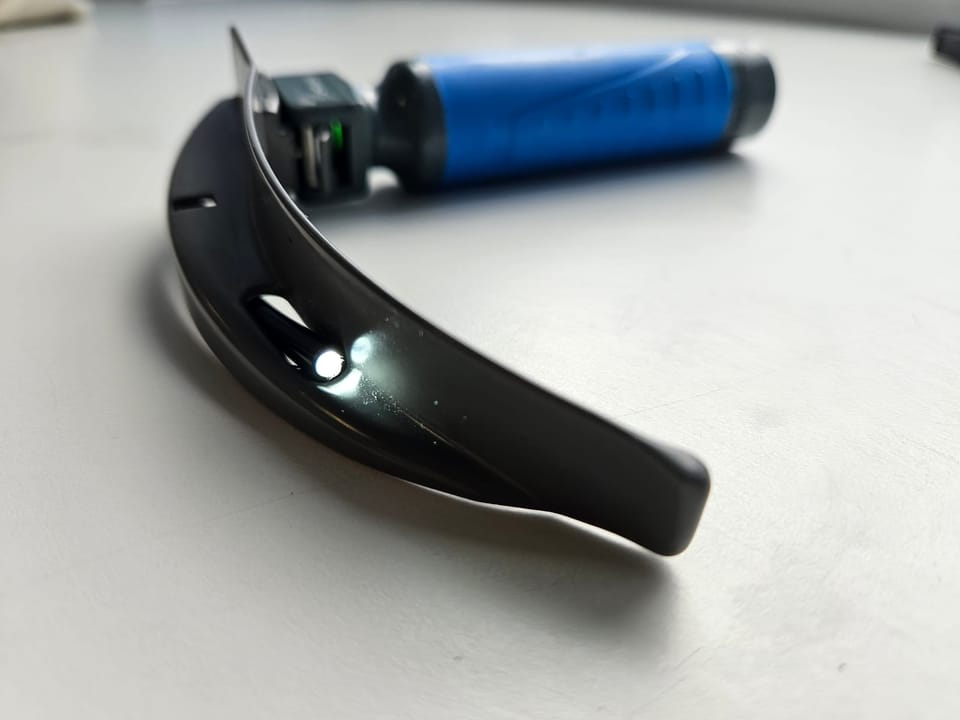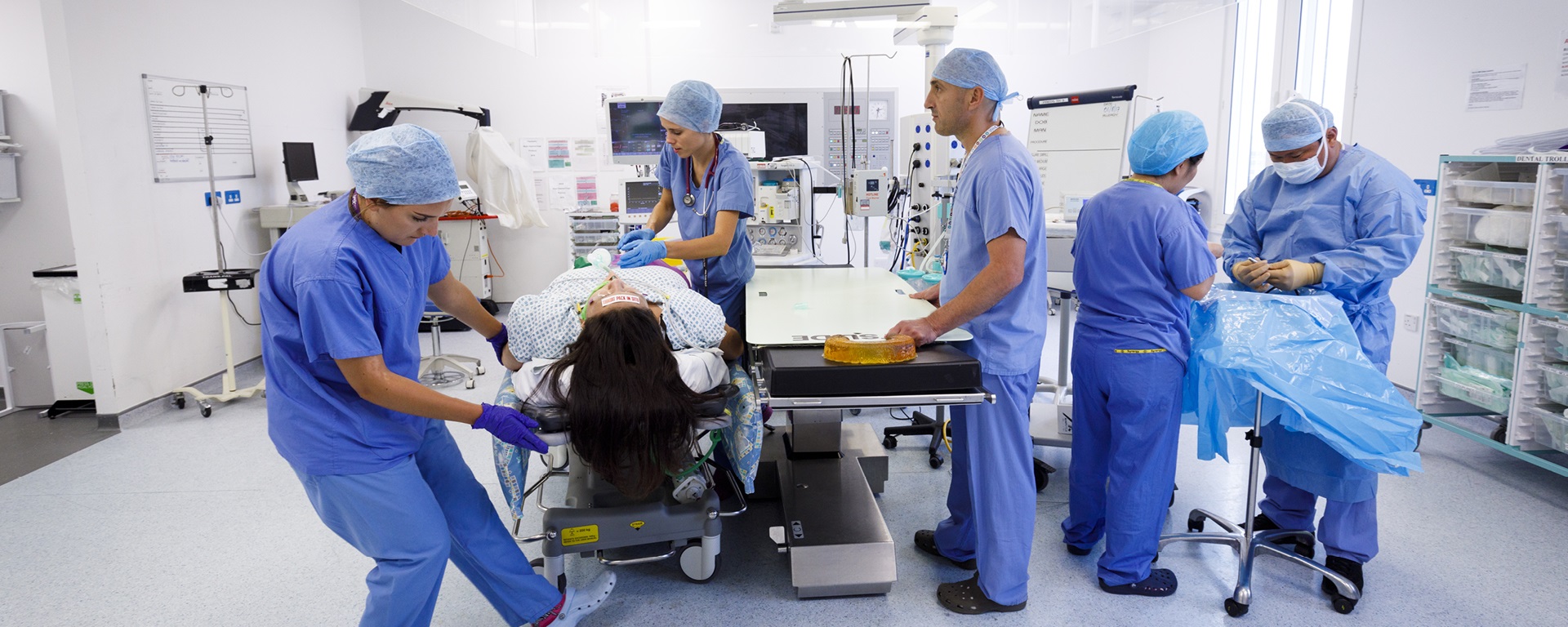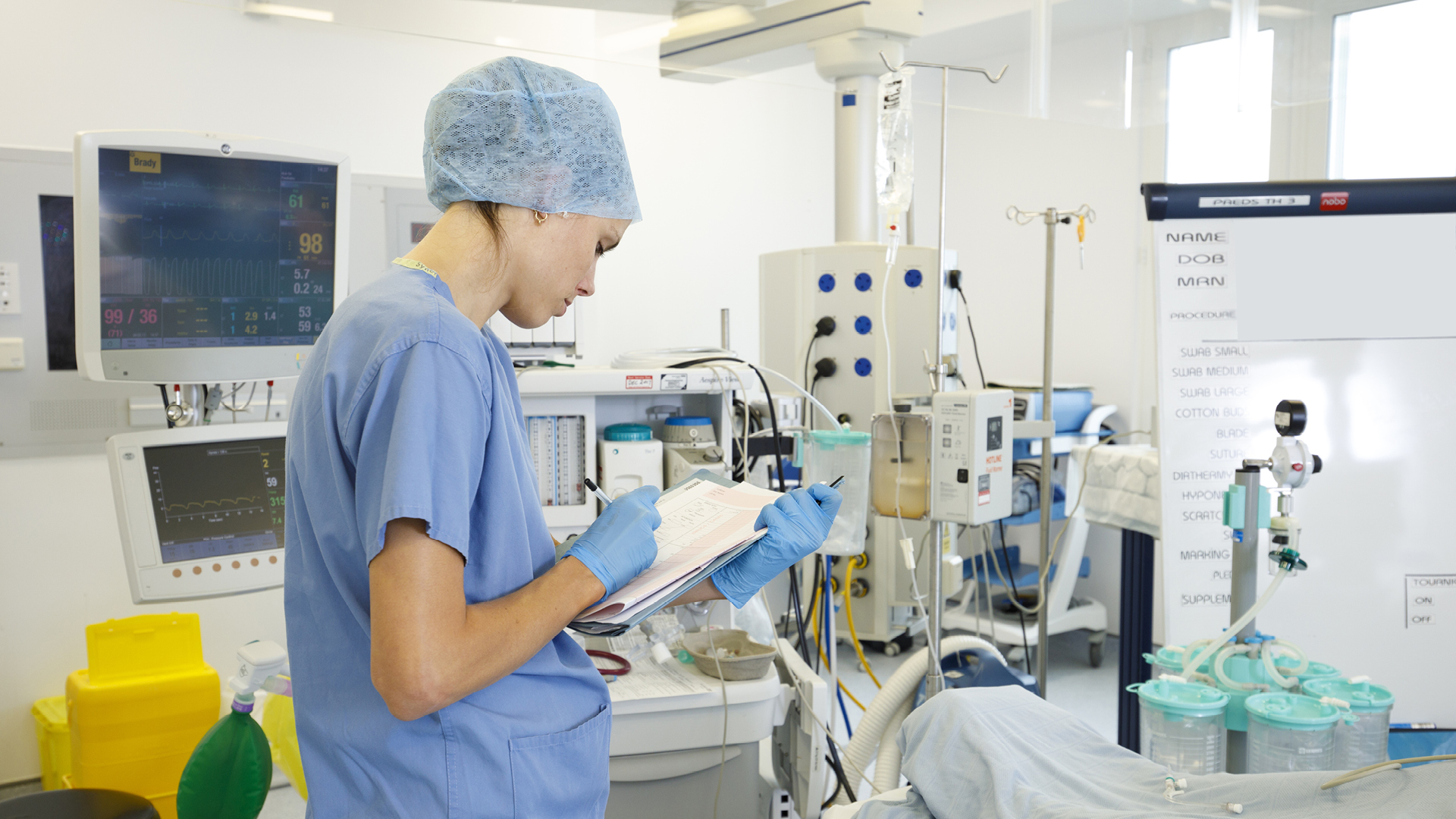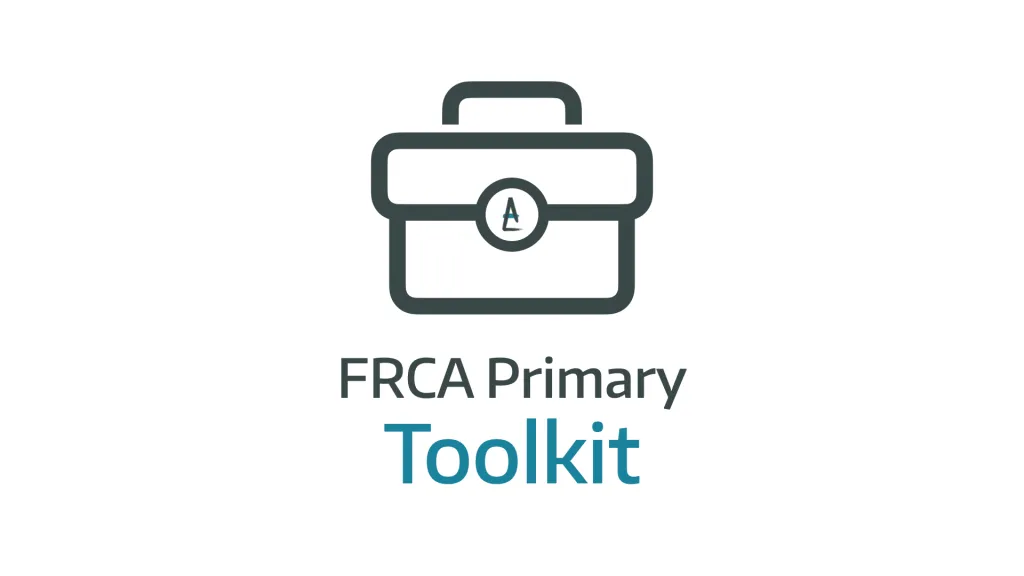Core vs ACCS

This is a guest post, written by Dr Elif Gecer - F2 Doctor - on how to choose between ACCS and Core Anaesthetics training.
Many of our wonderful readers have a wealth of experience and insight of huge value that we ourselves do not possess, be that as a result of changes implemented after we passed a certain stage, or because we haven't arrived there yet.
The process of applying to anaesthetics and the duration of the core training programme have changed significantly since we went through the process in person, so F2 Dr Gecer has graciously agreed to help us spread the word on what's actually involved, and how to choose from the available options.
If you have experience and expertise that you feel would be of value and would like to share with our audience, please ping us an email, and if you have thoughts on this article that would help prospective anaesthetists, please let us know in the comments!
Where to start
Applying for training can be a confusing and overwhelming time; this article aims to simplify the process of applying to Anaesthetics at a CT1 level and help you decide on which pathway is best suited to you.
Firstly, how does the application process work to become an anaesthetist?
To become an anaesthetist, applications are submitted via Oriel, typically during Foundation Year 2 or later.
- Invitations to sit the Multi-Specialty Recruitment Assessment (MSRA) are issued in December, with the exam taking place in January
- Upon successful interview performance, candidates can then rank their preferred posts, which include both Core Anaesthetics and ACCS Anaesthetics programmes
But what is the difference?
Core Anaesthetics
Core Anaesthetics is a three-year training programme representing ‘Stage 1’ of the pathway to achieving a Certificate of Completion of Training (CCT).
What you learn
The curriculum focuses on developing competencies in:
- General and regional anaesthesia
- Airway management
- Pain management
- Obstetric anaesthesia
- Intensive care medicine
Key Requirements
- Completion of the Primary FRCA examination, usually undertaken during CT1 or CT2
- This is mandatory for progression to Higher Specialty Training (HST)
- The Initial Assessment of Competence (IAC) must be completed within the first three to six months of CT1 before independent practice under distant supervision is permitted
Upon completing CT3 and the Primary FRCA examinations, trainees become eligible to apply for Anaesthetics Higher Specialty Training (HST).
Those pursuing a dual CCT in Anaesthetics and Intensive Care Medicine (ICM) must complete an additional 12 months in medicine and 12 months in ICM—some of which may be fulfilled during core training, with the remainder completed before or during HST.
Acute Care Common Stem (ACCS) Anaesthetics
ACCS is a three-to-four-year programme shared by Anaesthetics, Emergency Medicine, and Acute Medicine, with Anaesthetics extending to four years.
The structure is as follows:
- Year 1: Two six-month rotations in Emergency Medicine and Acute Medicine
- Year 2: Two six-month rotations in Anaesthetics and Intensive Care Medicine
- Years 3–4: Dedicated Anaesthetics training including obstetric anaesthesia
Airway competencies (IAC) are generally achieved in Year 2, often just after half way through the year.
This pathway facilitates dual training in Anaesthetics and ICM, as the required 12 months of medicine are completed during Stage 1, eliminating the need for additional training before HST.
Parallel but separate
While Anaesthetics, Emergency Medicine, and Acute Medicine share the ACCS framework, each specialty has distinct competency requirements. For instance, pursuing Emergency Medicine requires applying specifically to ACCS(EM)—these pathways are not easily interchangeable.
What are the pros and cons?
ACCS pros
- Four years to prepare for registrar applications (more time for exams/portfolio)
- Broad exposure to acute specialties
- Direct eligibility for ICM applications post-ACCS.
- Early completion of mandatory medicine rotations for dual CCT candidates
ACCS cons
- Additional year compared to Core Anaesthetics
- First-year rotations (Acute Medicine/Emergency Medicine) can be service-heavy and demanding
Core pros
- Shorter duration (three years), enabling earlier progression to HST
- Avoids Acute Medicine/Emergency Medicine if undesired for single CCT in Anaesthetics
Core cons
- Less time to complete the Primary FRCA and portfolio
- Dual CCT aspirants must complete extra medicine/ICM rotations post-core training
Which should I choose?
If you are set on a career in intensive care or prehospital medicine, ACCS allows you to rotate through the compulsory acute medicine block early in your career, and therefore you can avoid going back to ward cover later on!
ACCS also enables you to gain a better appreciation for the allied acute medical specialties and will potentially expose you to working in environments you may not get in the Core Anaesthetics programme.
However, if you are someone who is set on single CCT in anaesthetics, the core anaesthetics programme is better for you.
- You can also avoid the non-anaesthetics specialties through this route if this is something you would prefer
- And finally, you are still able to go into dual training later on if you change your mind
Overall, anaesthetics training is very flexible with a broad array of options for specialist interest development, and hopefully this article has given you some guidance on how to decide on which pathway is best for you!
Further reading and guidance



Author

What Reddit has to say
While everything crowd-sourced from anonymous accounts in the depths of the internet should probably be taken with a sizeable dose of powdered saline, it can prove a valuable treasure trove of experience and snippets of wisdom.
Here are some of our favourites:
- If you want to do PHEM the 6 months each of anaesthetics, medicine, ED and ICU all "in a training programme or equivalent" are much easier to achieve in ACCS than anywhere else
- If you want to do ICU, you may prefer to get your 6 months medicine done early as it is uniquely painful to go back to being a medical SHO in your ST5 year
- With ACCS you get a couple of extra points for ST4 applications as “time in other specialties” vs core trainees
- The advantage of doing Medicine later, is you might manage to develop specialist interest areas- Eg Echo/cardiology, and generally get more out of it
- I went for core, as even though I’m interested in ICM I couldn’t stand the thought of not learning any anaesthetics for a whole year. I knew it would make me loathe being a doctor again, at a time where I had just started to enjoy my job again
- I have had lots of discussions with a current ST4 dual CCT, who is currently doing her acute medicine year. She says it’s completely ****, but at least she’s getting paid as an ST4, and is doing 4 months of cardiology. She said it’s tolerable, just to get the tick box for ICM. I specifically asked if she regretted doing it that way and she said no
- ACCS anaesthetics is a scam to get an extra year of service provision. I ranked all core jobs above ACCS, but didn't interview well enough to get a core job, took the ACCS job because I didn't want to go through applications again
- Its nice to come across the anaesthetists who have done ACCS rather than core because they tend to have a bit more appreciation for the *** show that is acute/emergency care right now
- The core VS ACCS debate depends if you want to do ITU - If you do, do ACCS, if you don’t, core is better
- I chose CAT because I specifically wanted to come back to do my medicine (for dual training) at Reg level where even though you’re a medical “SHO”, you’re certainly not treated like one, you’re given more freedom, you have more confidence to speak up and the job is just easier because your clinical and organisational skills are better than at ACCS ST1
So, as expected, a mixed bag of opinions (and emotions) that seem to depend quite heavily on personal circumstances, career intentions and the inevitable pot luck of the department you end up working in.
Hopefully you feel slightly more informed ahead of such an important decision - please fire away with any questions you might have, we'd be delighted to hear them.
Some very thorough advice on optimising your ACCS
The following is copied from a publicly available post found here - all credit to OP - please follow the link and upvote the comment so that more people see it!
Portfolio
- The situation with the curriculum is a bit absurd due to the fact you have the stage 1 anaesthetics curriculum and the ACCS curriculum to meet
- Give the curriculum a read and work out where they overlap and find out what your deanery expects you to do regarding this
- For example ACCS LO8 and "stage I intensive care" outcomes are near identical
- Some deaneries just allow you to download your signed off LO8 HALO and upload it to ICM, others expect you to map stuff to them both
Similarly there are domains for teaching in both curricula. Map to them both.
Year 1
Acute medicine and emergency medicine.
- Mileage varies but most people seem to be used as typists and reviewing the chest pain patients while the ACP goes to resus
- I think there are a few things you can do to optimise this experience
- It is likely that you will now have worked in acute medicine in a number of different hospitals
- You should be pretty slick at being the SHO
- Think about what you can do to really optimise your experience and learning
- Offer to take the arrest bleep, have the difficult conversations with patients and their families about what would and would not be suitable interventions for them
- Almost immediately build up your confidence on how to do procedures
- BMJ on examination has some eLearning modules for most of the procedures
- Look at some reputable you tube videos (frequently Vygon/Bard/... make videos on how to use their products)
- Get yourself on a clinical skills course, then fairly early on try and get into locations where these skills are done frequently (LP clinics, pleural procedures...), even if it is just to watch
- Know the theory of how to do them
- This means that when the opportunity comes up to do the skills you will be in the best position to do them rather than observe
Similarly, CT1 is a good opportunity to use up your study leave (I would aim to use the whole 30 days) - skills courses/ALS/ATLS/APLS/Ultrasound course (+portfolio). Also use this time to gather evidence for some "generic professional capabilities" (teaching, audit...).
Year 2
Push for anaesthetics first, particularly if you have any ICM experience.
- During this year you learn the basics of your future craft - It is a steep learning curve
- A colleague likens it to learning to drive, but with a different instructor each day and each instructor actually just being people who happen to be driving - they may love teaching or hate it
- You will likely already have a lot of days of study leave allocated to your novice course, so probably not the best time to do ATLS/...
- This is why you would have done well to have essentially sorted a lot of your generic professional capability stuff in year 1
- During anaesthetics, don't worry about the primary at this stage, but don't not think about it. Search for the drugs you use and start to learn a few facts about them
- I would also try and spend 2 days on obstetrics, not to make you competent, but just so you have some idea ready for when you start (probably in CT3)
- Once on intensive care make sure you get reasonable at doing lines/procedures/assessments/decision making
- Practice phrases to argue why you should be the one to review an unwell patient/do a line
- In a years time you could well be the most senior anaesthetist in the hospital and people will look to you. Get good at this stuff now.
I think it is normal that ARCPs are in about April/May time. After this use 5 days study leave for self study (you are allowed 5 days per year and most people neglect to take any this year) and do something to start looking at the primary.
Year 3
I would now start to think about the primary hard now. It isn't an easy exam, but very possible. The exact components of the exam are likely to change in the next 3 years.
- If you look at the MCQ dates they are (currently) not evenly distributed throughout the year
- If your personal life allows it, I would aim for the September sitting because I feel if you have your first attempt later in the year you could then end up with a long gap before a resit/the next stage
- In addition, if you pass both the SBA and the OSCE/viva first go, you actually find out you have the primary before your November colleagues even sit the SBA
- I think this gave a psychological advantages over those that hadn't and the department favoured those who had.
Primary FRCA Toolkit
We've built the only resource you'll need to smash the FRCA Primary.
Paid members receive 60% discount off the FRCA Primary Toolkit in the form of free membership.
If you have previously purchased a toolkit at full price, please email anaestheasier@gmail.com for a retrospective discount.

Discount is applied as 6 months free membership - please don't hesitate to email Anaestheasier@gmail.com if you have any questions!

